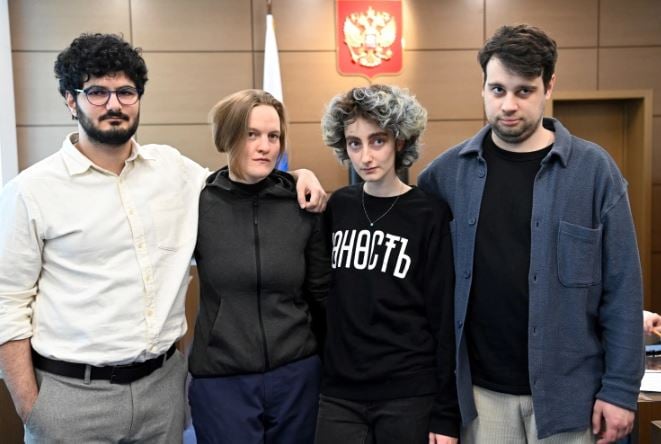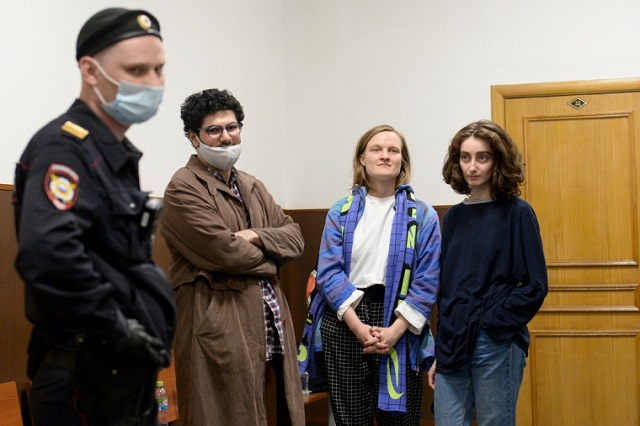In response to a Russian court’s sentencing of four journalists from the student-run online magazine DOXA to two years each of correctional labor, the Committee to Protect Journalists issued the following statement of condemnation:
“Russian authorities’ sentencing of four student journalists to two years each of correctional labor is deeply disturbing, and shows that authorities will truly stop at nothing to stifle independent reporting,” said CPJ Europe and Central Asia Program Coordinator Gulnoza Said. “Authorities must allow the former DOXA editors to live and work freely, and must stop harassing and censoring members of the press.”
On Tuesday, April 12, the Dorogomilovsky District Court in Moscow sentenced Armen Aramyan, Vladimir Metelkin, Alla Gutnikova, and Natalia Tyshkevich, all former editors at DOXA, to two years each of correctional labor for allegedly involving minors in illegal protests, according to multiple media reports. The court also banned them administering any websites for three years, those reports said.
Individuals sentenced to correctional labor are not imprisoned, but must pay the state treasury a portion of their wages during the time of their sentence; if unemployed, they must work at jobs assigned by the Federal Penitentiary Service, according to Russian law.
CPJ was unable to immediately determine whether the journalists intended to appeal their sentence.
Police detained the journalists in April 2021 over their coverage of authorities’ responses to political protests in support of opposition leader Alexei Navalny; Aramyan, Metelkin, and Gutnikova were held under house arrest until the court’s verdict, according to CPJ research and those reports.
Tyshkevich was held under house arrest until April 2, 2022, when she was transferred to administrative arrest for 15 days after a court found her guilty of displaying prohibited symbols related to Ukraine in 2017.
Students founded DOXA in 2017, and it became popular for its reporting on sexual harassment at Russian universities, according to reports. Authorities blocked the outlet’s website and social media accounts in late February over its reporting on Russia’s war on Ukraine, news reports said.
Committee to Protect Journalists























































